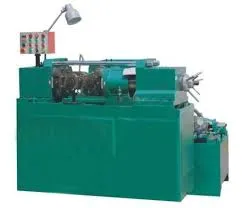
-
 Afrikaans
Afrikaans -
 Albanian
Albanian -
 Amharic
Amharic -
 Arabic
Arabic -
 Armenian
Armenian -
 Azerbaijani
Azerbaijani -
 Basque
Basque -
 Belarusian
Belarusian -
 Bengali
Bengali -
 Bosnian
Bosnian -
 Bulgarian
Bulgarian -
 Catalan
Catalan -
 Cebuano
Cebuano -
 Corsican
Corsican -
 Croatian
Croatian -
 Czech
Czech -
 Danish
Danish -
 Dutch
Dutch -
 English
English -
 Esperanto
Esperanto -
 Estonian
Estonian -
 Finnish
Finnish -
 French
French -
 Frisian
Frisian -
 Galician
Galician -
 Georgian
Georgian -
 German
German -
 Greek
Greek -
 Gujarati
Gujarati -
 Haitian Creole
Haitian Creole -
 hausa
hausa -
 hawaiian
hawaiian -
 Hebrew
Hebrew -
 Hindi
Hindi -
 Miao
Miao -
 Hungarian
Hungarian -
 Icelandic
Icelandic -
 igbo
igbo -
 Indonesian
Indonesian -
 irish
irish -
 Italian
Italian -
 Japanese
Japanese -
 Javanese
Javanese -
 Kannada
Kannada -
 kazakh
kazakh -
 Khmer
Khmer -
 Rwandese
Rwandese -
 Korean
Korean -
 Kurdish
Kurdish -
 Kyrgyz
Kyrgyz -
 Lao
Lao -
 Latin
Latin -
 Latvian
Latvian -
 Lithuanian
Lithuanian -
 Luxembourgish
Luxembourgish -
 Macedonian
Macedonian -
 Malgashi
Malgashi -
 Malay
Malay -
 Malayalam
Malayalam -
 Maltese
Maltese -
 Maori
Maori -
 Marathi
Marathi -
 Mongolian
Mongolian -
 Myanmar
Myanmar -
 Nepali
Nepali -
 Norwegian
Norwegian -
 Norwegian
Norwegian -
 Occitan
Occitan -
 Pashto
Pashto -
 Persian
Persian -
 Polish
Polish -
 Portuguese
Portuguese -
 Punjabi
Punjabi -
 Romanian
Romanian -
 Russian
Russian -
 Samoan
Samoan -
 Scottish Gaelic
Scottish Gaelic -
 Serbian
Serbian -
 Sesotho
Sesotho -
 Shona
Shona -
 Sindhi
Sindhi -
 Sinhala
Sinhala -
 Slovak
Slovak -
 Slovenian
Slovenian -
 Somali
Somali -
 Spanish
Spanish -
 Sundanese
Sundanese -
 Swahili
Swahili -
 Swedish
Swedish -
 Tagalog
Tagalog -
 Tajik
Tajik -
 Tamil
Tamil -
 Tatar
Tatar -
 Telugu
Telugu -
 Thai
Thai -
 Turkish
Turkish -
 Turkmen
Turkmen -
 Ukrainian
Ukrainian -
 Urdu
Urdu -
 Uighur
Uighur -
 Uzbek
Uzbek -
 Vietnamese
Vietnamese -
 Welsh
Welsh -
 Bantu
Bantu -
 Yiddish
Yiddish -
 Yoruba
Yoruba -
 Zulu
Zulu
thread rolling tool exporter
Understanding the Role of Thread Rolling Tool Exporters
Thread rolling is a critical manufacturing process used to create strong, precise threads on various materials without cutting. Instead of removing material, this process displaces metal to form threads, resulting in stronger and more durable components. The equipment used in this process, often referred to as thread rolling tools, plays a crucial role in industries ranging from automotive to aerospace and construction. As global demand for high-quality threaded components rises, the role of thread rolling tool exporters becomes increasingly significant.
The Thread Rolling Process
At its core, thread rolling involves the use of dies that shape the material into the desired thread profile. This method is efficient and cost-effective, allowing for high-volume production with minimal waste. Unlike traditional machining methods, thread rolling improves material strength due to the cold working effect, which aligns the grain structure of the metal. This results in a surface finish that often requires little to no additional processing.
Importance of Quality Tools
The quality of thread rolling tools directly affects the performance of the entire manufacturing process. High-quality tools can increase production efficiency, reduce scrap rates, and improve the overall quality of the final product. According to industry experts, using subpar equipment can lead to operational disruptions, increased costs, and even safety hazards. Therefore, selecting a reputable thread rolling tool exporter is essential for manufacturers seeking to enhance their production capabilities.
Global Market for Thread Rolling Tools
The market for thread rolling tools has witnessed substantial growth over the past decade. The proliferation of manufacturing industries globally has driven the demand for efficient and reliable thread rolling solutions. Countries with robust manufacturing sectors, such as the United States, Germany, Japan, and China, are leading consumers of these tools. As competition intensifies, manufacturers are increasingly turning to exporters to acquire advanced machinery that can handle complex threading requirements.
Choosing the Right Thread Rolling Tool Exporter
thread rolling tool exporter

When selecting a thread rolling tool exporter, several factors should be considered
1. Product Range A good exporter should offer a diverse range of thread rolling tools suitable for various applications and materials. 2. Quality Assurance Look for exporters who provide quality certificates and have stringent quality control processes in place. ISO certification is a good indicator of a company's commitment to quality.
3. Customer Support Reliable customer service is vital. Exporters should offer technical support, maintenance services, and adequate training for clients to maximize tool efficiency.
4. Reputation and Reviews Research the exporter's reputation in the industry. Customer reviews, case studies, and testimonials can provide insight into their reliability and performance.
5. Pricing and Financing Options While quality is essential, pricing is also a significant consideration. Exporters should provide competitive pricing and flexible financing options to accommodate different budgetary constraints.
The Future of Thread Rolling Tool Exporting
As industries continue to evolve in technology and demand, the future of thread rolling tool exporting looks promising. Innovations in materials and manufacturing processes are paving the way for the development of advanced tools that enhance productivity and efficiency. Additionally, with the increasing trend toward automation and computer numerical control (CNC) in manufacturing, exporters that embrace these technologies are likely to lead the market.
In conclusion, thread rolling tool exporters play a pivotal role in supporting manufacturing industries by providing essential tools that enhance productivity and component quality. By carefully selecting a trustworthy exporter, manufacturers can significantly improve their operations, ensuring they stay competitive in an ever-evolving marketplace. As the industry moves forward, the importance of these exporters will only continue to rise, underscoring their critical place in modern manufacturing supply chains.
